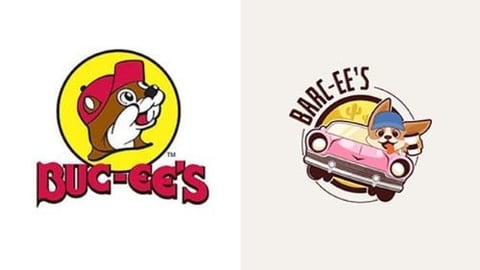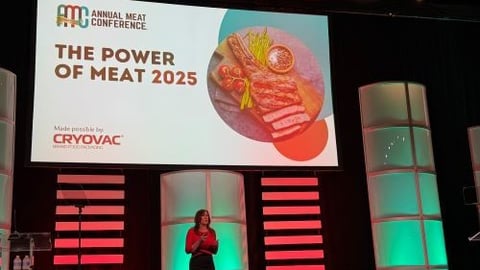THE FRIDAY 5: Kroger Countersues Albertsons; Dollar Tree Offloads Family Dollar Banner
Welcome to The Friday 5, Progressive Grocer’s weekly roundup of the top news and trends in the food retail industry. Each Friday, we’ll take a look at the stories that are most important to our readers and also keep tabs on the trends that are poised to impact grocers.
1. Growth for Meijer, Amazon Fresh, Ollie’s
News of footprint expansion resonated with readers this week, starting with Meijer opening a new neighborhood market in Independence Township, Mich. The 50,000-square-foot Independence Market will carry a large assortment of grocery items, including fresh meat and deli items, fresh produce, a bakery, and Meijer and national-brand items.
Amazon is also expanding in the grocery space with a new Amazon Fresh location in Silver Spring, Md. As it works to right-size its brick-and-mortar presence, however, the retailer also confirmed that two Amazon Fresh locations are closing, one in Manassas, Va., and another in Thousand Oaks, Calif.
Additionally, news of growth for Ollie’s Bargain Outlet made news this week. The company shared that it opened 50 new stores and closed three stores in fiscal 2024, ending the year with 559 stores in 31 states, an increase of 9.2% year over year. Ollie's plans to accelerate new store openings during fiscal 2025 to 75 stores. It's off to a good start with the recent acquisition of 40 more former Big Lots store leases from Gordon Brothers.
2. Dollar Tree Strikes Deal to Sell Family Dollar
After much speculation, Dollar Tree revealed this week that it has sold its Family Dollar banner for $1 billion. The company reached an agreement under which Brigade Capital Management LP and Macellum Capital Management LLC will partner to acquire the business segment.
The deal is expected to close in approximately 90 days, with the Family Dollar business headquarters remaining in Chesapeake, Va. In the first half of fiscal year 2024, Dollar Tree revealed the closure of 600 Family Dollar stores. Shortly thereafter, the company undertook a formal review of strategic alternatives for the banner.
3. Kroger Countersues Albertsons Over Failed Merger
The Kroger Co. has filed a legal response to the Albertsons Cos. earlier lawsuit against it, which the latter company filed in December as a result of the grocers’ failed merger attempt. Kroger is claiming that while it was working to seek regulatory approval and close the merger, Albertsons was engaging in a secret campaign alongside C&S Wholesale Grocers to pursue its own regulatory strategy, which ultimately undermined Kroger's efforts.
Kroger said that as a result of its misconduct, Albertsons is not entitled to the $600 million termination fee under the terms of the parties' merger agreement, nor is Albertsons entitled to other damages it is seeking. The alleged misconduct included incoming Albertsons CEO Susan Morris’ “secret communications with C&S's CEO and others, utilizing personal emails and cell phones to advance Albertsons's strategy.”
With these counterclaims, Kroger is seeking damages from Albertsons as a result of its misconduct and breaches of the merger agreement. Kroger says it will seek to recover the investment it made to obtain regulatory approval for the merger while Albertsons was working to undermine it.
In a media statement regarding the countersuit, an Albertsons spokesperson said: "Kroger’s weak claims are a deliberate tactic to distract from its own ongoing executive leadership issues; blatant and recurring failures to carry out its contractual obligations under the merger agreement; and avoid paying the damages it owes to Albertsons. Albertsons was steadfastly committed to the success of the combination from the outset. By contrast, Kroger did not hold up its end of the bargain, despite its duty under the merger agreement to take 'any and all actions' to address regulatory concerns.”
4. Giant Food Working to Keep Groceries Affordable
In an exclusive interview with Giant Food this week, PG Senior Editor Lynn Petrak learned more about how the grocer is working to minimize price impact on shoppers across its footprint in the face of a market that has yet to return to the prior definitions of normal.
“The lens at the center of it is the idea that ensuring groceries are affordable is probably one of the most pressing issues for any grocery retailer. I know for a fact that it is here at Giant. We obsess over looking at the data and how folks are shopping and what they are thinking,” said Ryan Draude, director, omnichannel loyalty, CRM and shopper marketing.
Heeding sentiment and some shifting behaviors in light of ongoing elevated inflation, Giant Food has deployed a variety of tactics to help its customers get the groceries they want and need while also keeping its business healthy. Read on to learn more about those tactics.
5. Pricing Transparency Ordinance Passed in San Diego
News came in this week that California’s San Diego City Council passed the Grocery Pricing Transparency Ordinance, a first-in-the-nation policy banning digital-only coupons in the city. According to District 9 Council member Sean Elo-Rivera, seniors and low-income families who may not be able to access these digital deals as easily unfairly end up paying higher prices.
According to Times of San Diego, under the new ordinance, grocers in the city that offer digital deals would be required also to have paper coupons available in-store and accessible to all customers. This allows all San Diegans to access the same deals, regardless of whether they have access to smartphones or the internet.
Grocers have 90 days to comply with the new regulations. Before then, the ordinance must go through a second reading that will take place in April.







